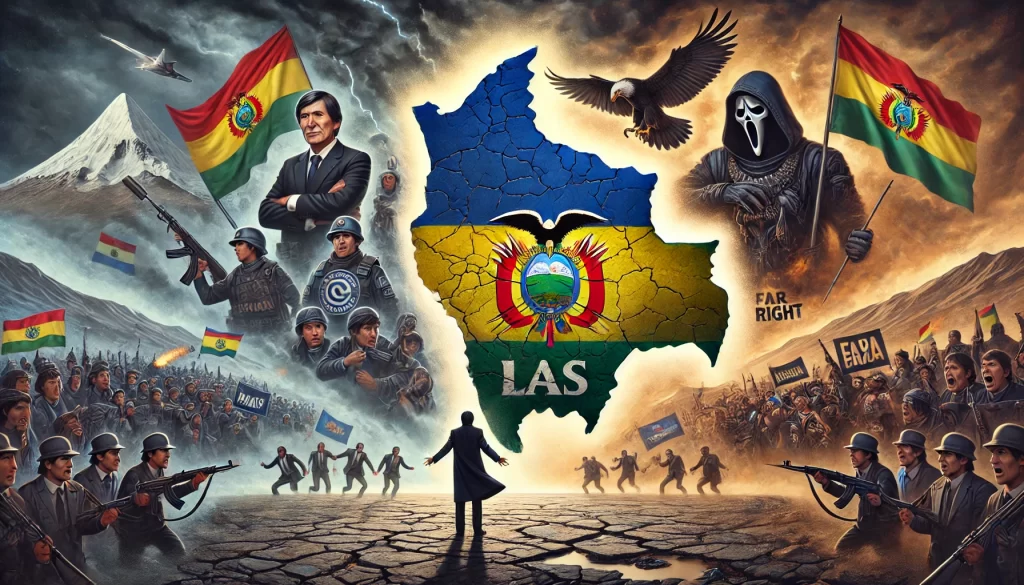
Bolivia, a nation rich in natural resources and cultural diversity, has experienced a series of political events that have shaped its recent trajectory. At the center of this maelstrom is the Movement for Socialism (BUT), a political party that has dominated the Bolivian scene in recent years, but also faces numerous challenges. The political instability that followed the MAS governments created fertile ground for the rise of far-right forces, threatening the country's democracy and stability. This article explores the role of MAS, the problems faced by the party, the ongoing political instability and the risk of the extreme right taking over the government.
The Movement to Socialism (BUT) is a political party founded in 1998, with Evo Morales as its central figure, the first indigenous president of Bolivia. MAS defends social inclusion policies, nationalization of natural resources and strengthening national sovereignty. During Morales' mandate, started in 2006, the country has experienced significant social and economic advances. The nationalization of gas and oil resources provided revenues that were invested in social programs, poverty reduction and infrastructure improvements. However, the MAS also faced criticism for authoritarian practices, corruption and manipulation of the judicial system.
MAS's internal problems intensified after the controversy surrounding the 2019. Morales ran for a fourth term after a referendum that rejected his re-election, which led to accusations of electoral fraud and massive protests. Domestic and international pressure forced Morales to resign and go into exile, resulting in an interim government led by Jeanine Áñez, who promoted a right-wing agenda and reversed several MAS policies. In 2020, MAS returned to power with the election of Luis Arce, former Economy Minister of Morales, but political instability remained.
Political instability in Bolivia is exacerbated by several factors, including regional divisions, ethnic and economic tensions. The polarization between high and low altitude departments, with different economic and cultural interests, fuels political conflicts. The opposition accuses the MAS of centralizing power and marginalizing the opposition, while MAS supporters denounce attempts by the economic elite to destabilize the democratically elected government.
The risk of the extreme right taking over the government in Bolivia is real and worrying. During Áñez's interim government, there was significant repression of social and indigenous movements, including human rights violations documented by international organizations. Far-right groups, like the Santa Cruz Civic Committee, led by figures such as Luis Fernando Camacho, gained prominence promoting a nationalist and conservative agenda. The rise of these groups represents a threat to Bolivian democracy and social stability, promoting divisions and exacerbating tensions.
The situation in Bolivia is a reflection of a broader context in Latin America, where political polarization and the rise of far-right movements threaten fragile democracies. Bolivia's recent history highlights the importance of strengthening democratic institutions, promote dialogue and seek inclusive solutions that respect the diversity and plurality of Bolivian society. The country's future will depend on the ability of its leaders and citizens to navigate these complex challenges and work toward a more just and democratic future..
Bolivia faces a period of political uncertainty marked by the challenges of MAS, the persistent instability and risk of the far right. The country's trajectory in the coming years will be crucial in determining whether it will be able to consolidate an inclusive and resilient democracy or whether it will succumb to the forces of division and authoritarianism. Vigilance and civic engagement will be key to ensuring that Bolivia can overcome these challenges and build a more equitable and democratic future for all its citizens.
